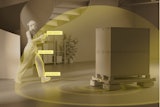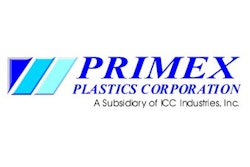“Distraction” by definition is “a thing that prevents someone from giving full attention to something….” When it comes to working in the warehouse there are countless distractions such as technology, other employees and even personal issues. While not all distractions can be eliminated in a warehouse, they can surely be reduced to improve safety and efficiency. Here are 10 distractions to consider and address.
1. Distracted Forklift Drivers or Equipment Operators
All workers in your facility should be aware of heavy equipment use. Employees must be trained to stay out of the way of forklift operators. Attempting to stop an operator in order to have a conversation can cause an accident. Employees must also be aware that waving their arms at operators also presents a danger and should therefore refrain from doing so.
2. Noise
Warehouses and production areas are often noisy. In many cases, little can be done to reduce machinery noise. Depending on the exact nature of an employee’s job, earplugs can help reduce excess noise distractions and harmful noise levels - those in the range of 90 decibels or higher. Earplugs need to be rated to be able to reduce the volume without compromising a worker’s ability to hear an approaching vehicle or alarm. Last and certainly not least, alertness is of the utmost importance while walking through a warehouse facility and therefore workers should never have ear plugs on during that time.
3. Loud Music
Loud music can be prohibited. Workers can still enjoy listening to their own music; but it does not have to blast through the entire facility. For safety, workers should be restricted to a single ear bud. If full coverage headphones are used, a worker might not be able to hear a warning. That risk should never be taken.
The same problem can occur if a PA system is used. These systems should be restricted to important announcements and not used for messages to individual employees. Having a phone or radio system for each general work area will cause fewer distractions to the entire facility.
4. Clutter
Clutter and debris is not only distracting, but also dangerous. A well-organized work area allows workers to perform their jobs without constantly taking time to find things and move items in their way. Workers should not have to walk through obstacle courses to get from one workstation to the next.
5. Cellphones
Cellphones should not have to be completely eliminated, but rules should be in place with regard to when it is appropriate to be used and for how long. Employees may need to make or receive emergency calls, but the use needs to be restricted only to emergencies during work time.
6. Chatty employees
You do want your employees to work well together. Socializing can improve morale and keep production moving. Too much socialization can be very distracting, however. Workers can become so involved in conversation that they lose track of what they are doing. In addition, conversations can also be distracting to others in the immediate vicinity. If you have a large number of workers in a small area, you may need to rotate or move overly talkative individuals.
Other distractions may come from workers that drop off parts and materials. As they travel through the facility, they should be careful to minimize the distractions they can cause.
7. Food and drinks
Many facilities do not or cannot allow any food or drinks in work areas. Other operations are not as restrictive. In areas that are not adversely effected by these items, care must still be taken. Food and drinks should be kept away from any computer equipment or production lines. A spill will not only distract a worker but also lead to a host of possible hazards or equipment damage.
8. Observers
Most workers do not perform well if someone is looking over their shoulder. While supervisors do need to supervise, excess observation is an unnecessary distraction. If productivity assessments must be made, have them done from a reasonable distance.
If you are planning to give clients a tour of your warehouse, alert your employees in advance. Try to minimize the amount of time spent in any one area and keep your visitors far enough away from personal workspaces.
9. Extreme temperatures
Trying to work in an area that is too hot or too cold can be uncomfortable and therefore very distracting. Portable heating or cooling systems are useful in controlling temperature extremes. Fans can be used to circulate air to keep the temperature uniform. In situations where temperatures cannot be regulated, such as freezers or boiler areas, allow extra breaks to keep your employees comfortable.
10. Fatigue
Your employees really do need breaks during their workday. If break times are limited to 10 minutes, your workers may not get any real benefit. This situation occurs when bathrooms or break areas are located too far from workstations to allow the workers to utilize the facilities or get a beverage.
While you want to get as much production as possible from each shift, do consider your workers’ comfort levels. You may find that allowing for a few extra minutes provides the re-energizing and morale boost your employees need. Try some of these ideas and you may be pleasantly surprised at the improvements.
Jerry Matos is the Product Specialist at Cherry’s Industrial Equipment. Cherry’s Industrial Equipment is a company that manufactures and specializes in customized material handling equipment to meet the specific needs of their customers.
To read more manufacturing and technology news, sign up for our newsletter. You can also follow Manufacturing Business Technology on Twitter @MBTwebsite.























